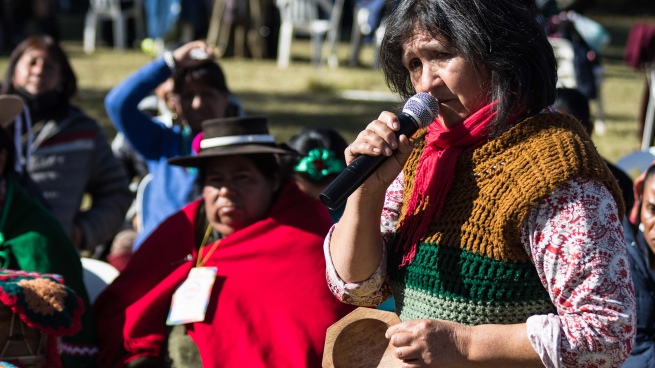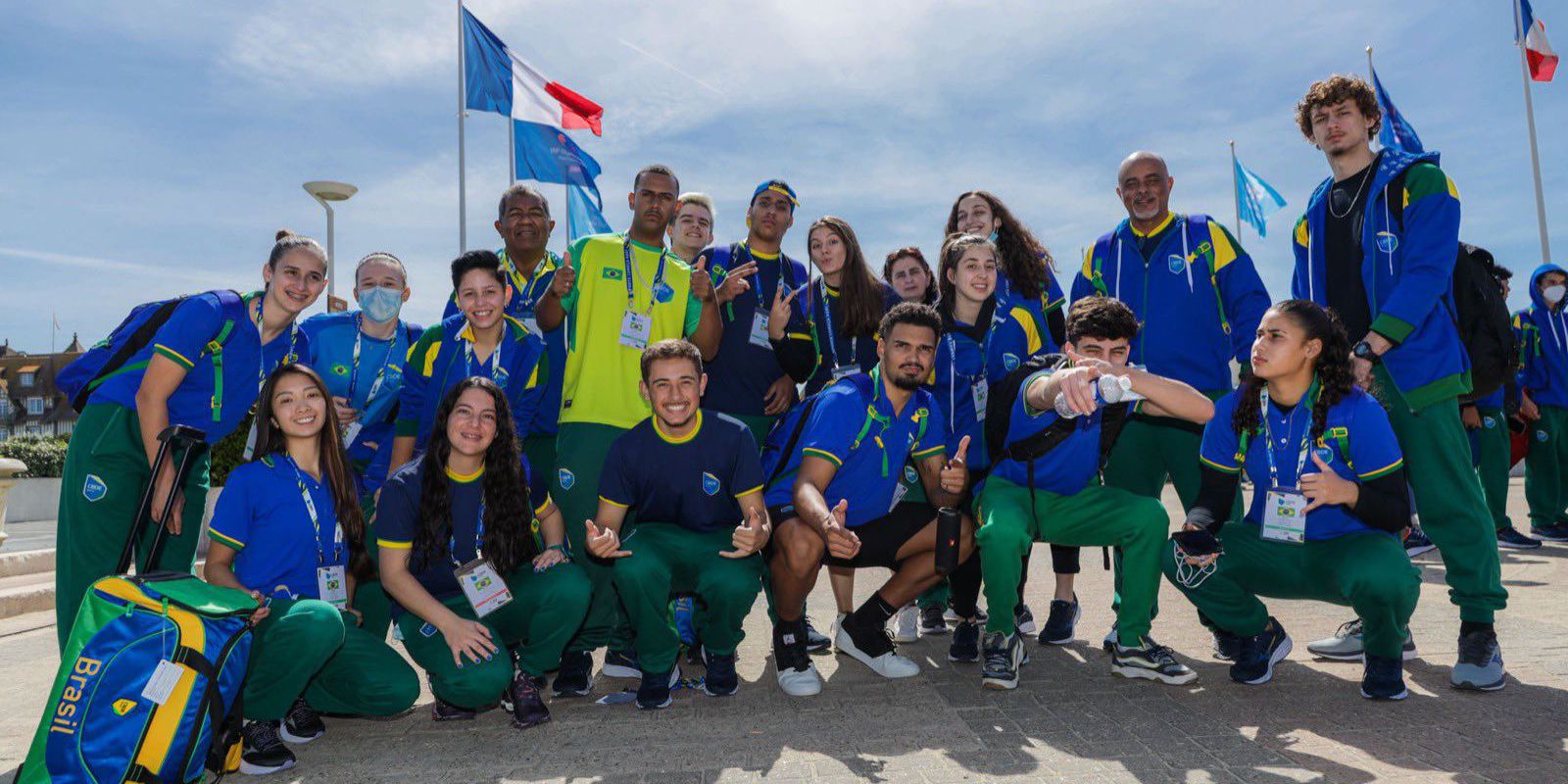Makers for Good Living is a collective and identity brand promoted by the Movement of Indigenous Women for Good Living, from which it is working to open an online store to offer arts, knowledge and services of members of indigenous peoples, it was announced this monday in a economic self-management workshop of the Third Plurinational Parliament of Women and Indigenous Diversities.
“During the workshop we addressed Makers for Good Living, through which we seek to value the art of all indigenous peoples, with all their wisdom, the burden of ancestral knowledge and the lineage of the family that makes it,” she told Télam. Nely Curia, a Mapuche potter.
Curia, who lives in El Bolsón, province of Río Negro, participated in a workshop on Economic Self-Management within the framework of the Third Plurinational Parliament of Indigenous Women and Diversities for Good Living, which has been taking place since Sunday in the town of Chicoana, 40 kilometers from the city of Salta.
During this workshop, it was announced that from the collective and identity brand Makers for Good Living working on the creation of an online storethrough which it seeks to exhibit and sell handicrafts from the members of the different native peoples of the country.
This brand is promoted by the Movement of Indigenous Women for Good Living, which in turn is in charge of organizing the parliament, whose closing is scheduled for next Wednesday, May 25. “In this workshop we reaffirm the immediate need to put this into operation, because really the sisters, with all the knowledge and knowledge they have, continue to have jobs in which they cannot really charge what their art is worth,” Curia said.
For her, it is essential to search through this information technology tool for “the type of audience that values labor, the time it takes to create the piece, the story it carries, to collaborate with a creator who seeks good living through through his art.
“We explain why the movement has created an identity brand called Makers for Good Living, which will soon be on the web, with the sole purpose of having a common brand of women who live in the territories and who aside they may have a sale price according to the actual work of their crafts“, he sentenced.
Later, he commented that during the workshop he felt that “the sisters recognized each other as artists”by listening to everything that goes into doing their work, from the knowledge they have to make it to the wisdom they apply at every step of the process.
“Listening to each other, they realize that in their daily activities they have great wisdom,” Curia said, adding that “it did them good,” and they even “got emotional,” and “that’s because these encounters do us good“.
In this sense, she added that “parliament for us is to value the word of our daily work, of how we live”, and maintained that “we need that respect for when we exhibit our art, which has all the knowledge, strength, an identity”.
Likewise, she commented that from the movement “we speak of terricide, and we also speak of take care of the elements of nature that we use for our work“, and highlighted “the spirituality that is handled in each territory” to search for the raw material. “That is why we also talk about how we are going to protect those elements and resources, which we use with gratitude, which adds to the value of the work”, he affirmed, after which he pointed out that the website will serve to promote and exhibit “all the arts that the sisters of the interior do, from textile art, to basketry, pottery, jewelry, handicrafts, drawing on fabrics, and sublimated t-shirts”among other.
In this way, they will seek to put on sale “a wide range of crafts that the sisters make in the territory, with natural elements or not, but made with their hands, in addition to services and knowledge, since through Makers we teach different workshops, such as pottery, indigenous culture, languages,” he explained.
The organization to be able to include the products in this online store “is always through the Movement of Indigenous Women for Good Living, which is made up of a lot of teams, including Makers,” Curia said.
In this sense, he explained that the communication and finance teams have a lot to do with the creation and implementation of this toolafter which he indicated that a minimum percentage of the sale will be allocated to the work of all the people who will allow the different artistic pieces “to be on the web permanently”.
Curia specified that the store will be online onlydue to the distances between the different communities, and affirmed that “the sisters told us about the hardships they experience with the sales”.
Therefore, he stated that “when evaluating the markets, we see that in most cases large stores appear to buy all the production of a season from a sister and give her money that is not enough for her at all”.
Makers for Good Living “it is about putting all our art makers and continuators of their ancestry on equal sales terms,” Curia stressed, while detailing that “there was a lot of reception” of what was discussed during the workshop .
“We see the needs that happen and how impoverished our sisters are, when they are rich in knowledge, in experience and above all in work,” she said, while stressing that “we have to work as quickly as possible so that this can be a great benefit for all the sisters in the territories,” she said.
Finally, Curia remarked that “Among indigenous peoples, we generally admire each other, each with its own identity. Even doing the same, we are gratified in the look and in the valorization”, and concluded: “we have no rivalries”.












